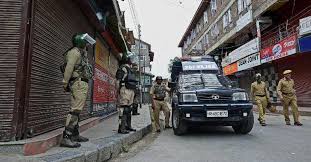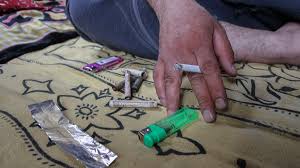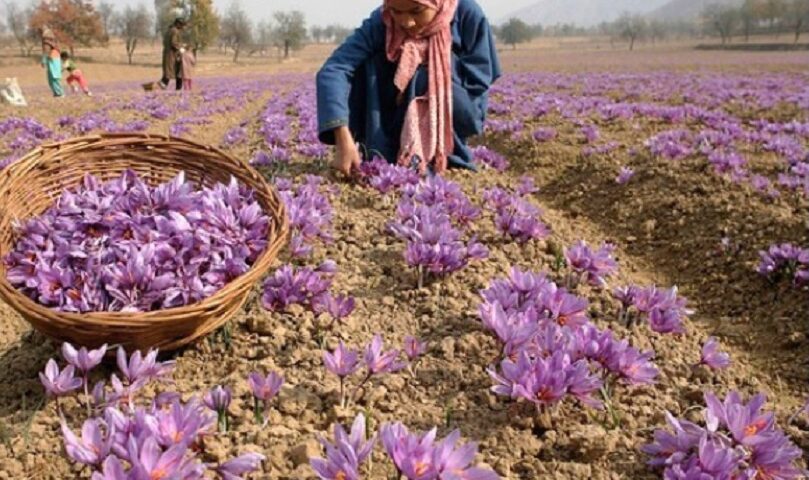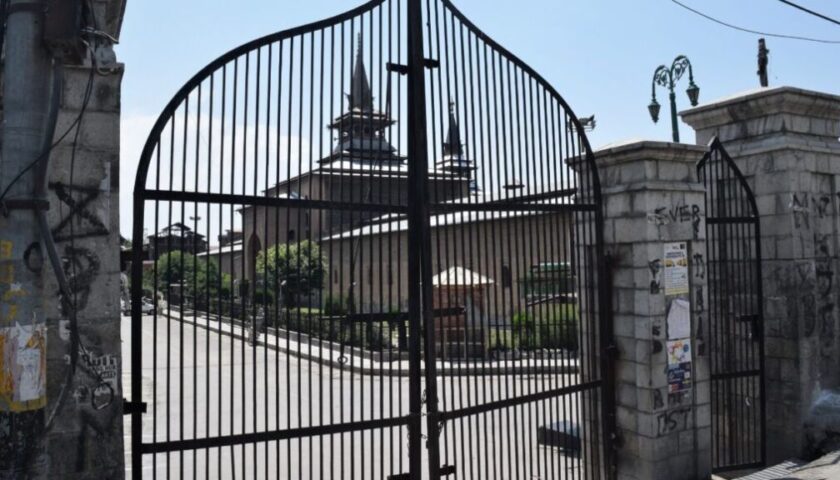Srinagar sees the first light of day at 5.15 am; by 6.30 police and paramilitary personnel are manning every street, lane and bylane of Old City, the separatist stronghold.
ONE HOUR 15 minutes. With Kashmir under its longest ever continuous spell of curfew, for many in Old Srinagar City their lives depend on what they can make of that time.
Srinagar sees the first light of day at 5.15 am; by 6.30 police and paramilitary personnel are manning every street, lane and bylane of Old City, the separatist stronghold.
Sheikh Majid is among those in Fateh Kadal out today at the crack of dawn, leaving with the call for early-morning prayers from mosques. He is counting on finding shops open to stock up on milk, groceries, vegetables and other essentials, but the 28-year-old is almost sure he won’t be able to get what is on top of his shopping list today: diapers for his two-year-old boy.
“These are difficult times. We know we have to bear with it. But it is very painful when your baby needs milk or a change of diaper and you feel helpless,” says Majid.
“They (the forces) don’t even let patients go to hospitals,” claims Nazir Ahmad Bhat, a resident of Nowhatta, whose 15-year-old son isn’t feeling well. “Before I could tell them we have to go to hospital, they ordered us to go back. When we persisted, they pointed a gun towards us. We returned silently.”
A curfew pass isn’t easy to procure. These are issued by the Srinagar deputy commissioner and generally given only to journalists and those who can get clearance from higher-ups. Even then, the passes are often ignored by the wary men in uniform.
Kashmir in general and Old City or downtown Srinagar in particular have seen long spells of curfew in the past. The Valley was shut for a month after the Hazratbal siege of 1993. In 2008 and 2010, Kashmir witnessed short spells of curfew quite often. But this time, the curfew has already stretched for a month and half without a break in most parts of Kashmir. In Old City, security forces only withdraw in the night for a couple of hours, till dawn.
Whether Majid gets what he wants today depends on whether or not police have allowed milk and vegetables into Old City, from villages around. Supplies are allowed during the night, but there are days when police and paramilitary forces close all the entry points and stop milkmen and vegetable sellers.
With houses densely packed in Old Srinagar City, including at Fateh Kadal, residents have no space for kitchen gardens, leaving them totally dependent on villages for supplies. That makes this area one of the worst affected in Kashmir in terms of shortage of essential commodities.
While Kashmiris are used to stocking essentials, as earlier the Valley would get cut off from the rest of the country for months during winter, that is mostly in the case of rice. “Traditionally, we don’t like eating pulses during summer, so very few people have pulses in store. And vegetables cannot be stored,” says Naseem Ahmad, a resident of Safa Kadal.
Besides, he adds, “All this happened so quickly that we did not get a chance to store things. We ourselves have enough rice for two months, but there are people who live hand to mouth. For them, life is very difficult.”
Ashiq Ahmad, a resident of Nawpora Srinagar, says they have changed their diet to mostly rice with vegetables, and sometimes pulses. “Among vegetables, we are able to get only kale and a few others produced locally.”
Meat is a luxury, with mutton, the most widely eaten, almost completely unavailable, and chicken scarce.
“Usually, I supply around 400 litres milk to people downtown every day,” says Abdul Gaffar, who belongs to Maloora village on the outskirts of Srinagar. “But this time, police have stopped me near Parimpora (on the outskirts of Srinagar) on many days. They didn’t allow me to move forward or to go back, often causing the milk to spoil.”
Majid says things have turned even more difficult over the past couple of days after curfew was extended to night-time and following the police crackdown on “volunteers”. “We had volunteers who brought in vegetables, pulses and other essentials every evening. They stored the goods in the local mosque, and sold them on a no-profit, no-loss basis. People would go to the mosque early in the morning and buy the things. But then police asked them to stop it,” he sayss.
Superintendent of Police (SP), North Srinagar, Sajad Khalid refuses to comment on the charges.
With the national highway largely closed — shut at night for security reasons and blocked in daytime by protesters — the number of trucks bringing essential supplies to the Valley from outside has also dipped.
J&K Minister for Consumer Affairs Choudhary Zulfikar Ali denies there is any shortage. “We have adequate supplies, and we have ensured that these continue unhindered,” he says.
According to the minister, “some problems” have been created by sporadic incidents of people throwing stones at trucks carrying supplies.
However, the minister’s figure of 24,000 trucks bringing essential supplies to the Valley since July 9 makes it around 35 per cent compared to normal days. Hizbul commander Burhan Wani was killed on July 8 night, triggering the protests.
Excise Department officials say that on an average, around 1,500 trucks entered the Valley every day, or 45,000 trucks a month, before the protests.
Having found no diaper today, Majid decides he will wait for the next day morning. While curfew has ensured that the shops remain shut, some shopkeepers have started trading through the backdoor in Old City. Majid hopes to find one such backdoor entry to get a diaper.
It’s close to 6.30 now. In the distance, police and paramilitary vehicles can be seen driving in. Majid and the others rush back to their homes. Some who are still out are herded inside.




